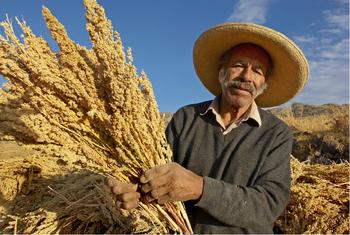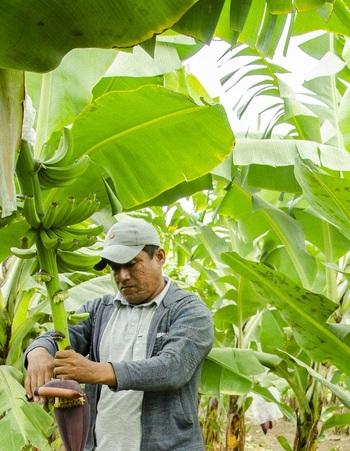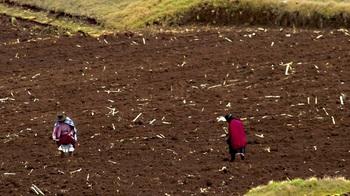Context
About three quarters of Peru’s rural population work in the agricultural sector. The main crops are sugar cane, rice, maize, potatoes, bananas, cassava and grasses for livestock farming. Agriculture has developed dynamically in recent years. Between 2010 and 2017, the annual export volume grew by 41 per cent to 4.8 billion US dollars. However, climate change is causing an increase in droughts, floods, landslides and extraordinary temperature fluctuations, and El Niño is a climate phenomenon that regularly results in billions of dollars’ worth of economic damage.
These extreme weather events are making it difficult to fight poverty, which affects about 60 per cent of the rural population. The Peruvian Government has set out to improve incomes and living conditions, especially for smallholder farmers. It aims to help them insure themselves against climate risks and associated crop losses more effectively, and to encourage the farmers themselves to use risk-mitigating measures. By growing bananas, which require significantly less water than rice, for example, they can prevent losses during severe droughts.
Objective
Peru has a risk transfer system for the agricultural sector that is financed by the state and the private sector. The system includes insurance against climate risks.


